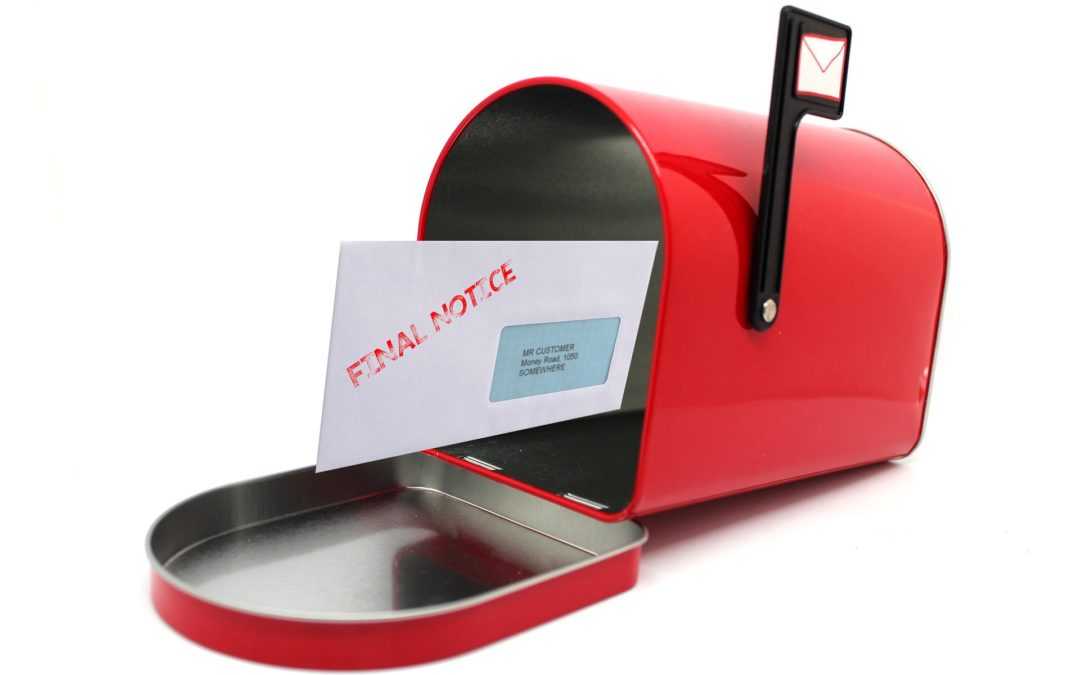
by admin | Oct 6, 2021 | Simple Self Help
Given the ease with which shops and retailers offer credit to all who they deal with, it is easy to collect plenty of personal debt seemingly without trying too hard. If you are already working with debt in your life then you need to take action on reducing your debts.
Understand exactly how much money you owe. Draw up a comprehensive list of all the companies and people you owe money to. Be honest with yourself in doing this process. Open every envelope that is sent by the people you owe money to. Keep them all in one file and in a place where you can refer to it quickly. Stay in regular communication with your creditors (your Creditor is the person who has given you credit as opposed to a Debtor who is someone owing you money), and let them know what is happening - even when you have no money, and nothing is happening to reduce your debts and the amount that you owe.
Get clear on the numbers, and you can be clear on your options.
Dealing with the bills and the debts that you have is best done with a focus on the interest rates that are highest. Split your available funds for debt repayment such that you are making the greatest inroads on the ones that are costing you the most.
Keep a strict and accurate handle on the paperwork related to your debt situation and ensure that you stay away from other opportunities to waste money. Your priority is to deal with the existing debt and reduce it down to nothing, however long this task takes you.
Maintain regular payments to all your creditors even if the amount you pay each month seems tiny to begin with. As you pay down the high interest debts and eventually pay them off, take the amount that was your regular payment and throw that at the next highest interest rate until that is gone too. Over a period of time you will see the same benefits of compounding in your successful debt reduction as you are looking forward to in the accumulation of future savings. Remember that it is not just the regularity of the small payments, but also the fact that you are communicating with your creditors regularly.

by admin | Sep 8, 2021 | Simple Self Help
This one is really easy. To hold onto your money and see it grow, simply spend it at slower rate than it comes in. Now, was that rocket science? Hardly! But most people have no idea how they spend their money. Slow down the pace at which it leaves your account or moves through your hands.
I suggest that you grab a sheet of paper and take it everywhere you go for a whole week. Use it to record every single penny, peso, dime, dollar, shekel, and euro you spend. Keep every receipt and write everything down. Do the same again the second and the third and fourth weeks and in doing that you have a one month pattern of your spending and inflow.
By totting up the numbers on your sheet for each week and deducting this money from your weekly or monthly income you know exactly where you stand financially each month. And all you have to do to win at the money game is take an area of your regular expenditure, work out what this is as a percentage of your income and ensure that next month you spend a reduced portion of your income in this area.
You either increase your income or reduce your expenditure in order to start winning. If your income is fixed, but you reduce your expenditure then you will be ahead of the game and you can choose to enhance the quality of your life by spending on some better things, or you can place the surplus into a savings account.
If you can increase your income and maintain the same fixed costs you can do the same again and place more money aside into an account where you get the rewards for having done so.
Where you can do both i.e. increase your income and reduce your fixed costs, then you are in control of a positive move forward, maintaining a lifestyle you choose and placing cash in the savings programme for your benefit further down the road.
Wherever and whenever you start, enjoy the process and realise that through the decision to keep track of your money you put yourself in a position of being able to keep hold of the money for the long term. So get pro-active and start to monitor all the money that comes your way. By knowing what you have and where it goes you get to choose how you spend what you hang on to.

by admin | Jul 15, 2021 | Simple Self Help
The best money you can ever spend is money invested in your own mind, expanding the quality of your knowledge and increasing your ability to take control of your circumstances or make new ones that work better for you.
Whether it is attending an evening class, going on a weekend seminar, listening to podcasts, learning via the internet or simply browsing in your local library or used book store, you are giving yourself new information and creating new neural pathways in your brain. Once you have exposed yourself to new information your mind cannot go back to how it was before.
My friend Ian once said to me that
"If you read for one hour a day on a topic where you are a novice, within a year you will become incredibly competent in that topic and within two years become an expert."
Imagine what a great place you will be in by doing this!
Pick something you want to know more about:
- Painting with Oils;
- Building your own Home;
- Cooking with Pasta;
- Investing in Property;
- Creating Games for your Kids;
- Home Budgeting;
- Do it Yourself Car Repair;
- Growing Roses.
You choose the topic and do the work, and your mind will take care of absorbing the learning. Place the new information in front of yourself and enjoy what happens.
Join a class, get into a discussion group, contribute your thoughts to a book club, and meet with the people who can teach you new skills and insights. You will be astounded at the power of your mind to expand to new learning.
Start your self-learning with something you are curious to learn more about. Once you have enjoyed the fruits of this learning, pick a topic that might help you in a work related skill, in your home life, or in building your skills with other people and watch your progress.
Get down to the art gallery. Book yourself on a course in archaeology or ancient history. Buy yourself a session in a life drawing class or a series of flying lessons. But do any of these things because you want to follow your curiosity and satisfy an urge to learn more about something.
Remember this piece of information from a wise one:
"A skill once learned can never be taken away, and your mind can never revert to the time before you gained the new knowledge."

by admin | Jun 9, 2020 | Simple Self Help
Money will come to you to the extent that you offer a service that is of value. Of course, you could marry money, inherit money or even win it on the lottery, but the reality is that either one of those methods involves you in some processes you might either feel sorry for or sad about later!
The greater the value you offer, the greater the inflow of money. If you ever find yourself thinking you are earning less money than you are worth, then you need to look at your contribution to service. When people know that you offer something of value, they will turn up in droves to hand over their money.
Receiving money can be as simple as asking for it in the first place! When was the last time you actually stopped racing around and said aloud "I need more money and welcome it now" instead of simply spending hours worrying about the lack of money you were experiencing at the time?
For whatever reason, it is very easy to push away money in the same way and for often the same reasons that we push away so much of the goodness and the riches that life has to offer us. One reason we reject it is because we are unable to receive with ease and without guilt. So the more time you can put into receiving with pleasure and to saying 'thank you' for all the abundance that the Universe has to offer you, the more likely it is that you will start to notice some great things turning up in your life.
Being able to receive is crucial to your earning money for you will turn opportunities away until you can receive without concern or without worry. Simply receive in the moment.
If you are experiencing lack of inflow and plenty of outflow, you need to reverse the trend. The easiest and simplest way is for you to review and reflect upon the value of the work you do, and the people you deliver it to.
- What skills can you offer? How about a level of service, support or problem solving?
- What are you good at naturally that your friends and co-workers often express surprise about or ask for your help with?
- Do a skills audit of your abilities and talents, of those of your friends and family.
- Look at the amount of money that these skills and talents can be worth in the right market place. Notice that I said "the RIGHT market place." Having the right talents applied to the wrong market, to the wrong audience group, or to the wrong potential client, will have no value as you will have missed the mark.
Get creative over your ability to earn and to attract money into your experience. Start with something simple and develop from this level upwards. Take an example such as manifesting or attracting to you a cup of coffee or a big smile from someone on the street. Once you have managed this and proven to yourself how easy it can be to receive what you put out for, then you can move onto bigger and better things and situations.
Just the same is true for money. You might begin with saying to yourself "I am attracting the funds needed to pay for my car maintenance" and then let go of any attachment to the outcome. All manner of things could happen to get you the desired end result of having the car maintenance bill settled. It could be that someone gives you the money as a gift, or you receive a tax credit for a matching amount of money, or maybe you find a windfall to the same amount. What matters is that you ask for the result and let the money make its own way to you.
To attract money from your job or a small business that you choose to set up and run, first decide what service you will offer and then commit to delivering that service. Invest time and energy in identifying the buyers for your skills, services, products and talents. Make it your business to be in business with these buyers.
In the context of your job, invest your energies in becoming a valuable resource for the business that employs you.
Learn more about your niche, develop your skills in such a way as to make you more important to the success of the company. This might be through online learning, attending in-house training events, or simply through getting involved within your local business community.
As your work related learning and abilities grow, it is very likely that this will be matched with greater opportunities and benefits that can be measured in terms of reward and money.
When this happens be ready for it, and make sure that you take those rewards to the bank!

by admin | May 12, 2020 | Simple Self Help
Money is a topic that so few of us ever learn at school or from our family when growing up. I mean, how are you supposed to get a financial role model from a schoolteacher who is just surviving on salary that is only enough for them to pay their own bills, let alone develop your own savings and patterns of Financial Independence?
We have to learn about it now and we have to get on with it. Every month that you refuse to acknowledge and learn the basic principles of financial success and money management is another month wasted, and another month of compound interest missing from your savings. Before you can know it you have to learn it and there sure as hell is no better way to learn it than to start handling money right now in your life.
Facing the subject of money and the emotion that it brings up for all of us is a strong beginning to dealing with the whole subject. An example of facing money as a topic might be something as simple and straight forward as opening an envelope that arrives and which you know contains a bill. Once you get the bill out you are in a position to file it and set a date for it to get paid.
Keep a running file of the amounts you owe and track the money you have coming in. When it comes to handling and managing money, your conscious awareness is nine tenths of the reason for your success. The less you know about your financial situation, the more you deny needing to own and control the detail, the more likely it is that you will struggle to attract it and keep it.
The last thing you should do is leave opening the post until another day or until you think you might have some cash in to pay it. By opening the post and dealing with it you are back in control of your situation.
One significant key to getting in control of your money is the ability to speak to your creditors, the people you owe something to. Once they know that you are communicating with them, much of their nervousness around the debt you owe will reduce. This allows you to make steady and constant payments within your budget, reducing your debt until it is all gone.
Being aware of your numbers is one of the keys to understanding and being in control of your finances. If you are bringing in enough money you can meet your bills and save. If you know your numbers each day, then you will also know when it is time to turn up the energy and attract more money into your life.

by admin | Apr 14, 2020 | Simple Self Help
While knowing what you want is a useful skill in life and a great way of thinking to move things forward and to improve your circumstances, there is a vast difference between knowing as a logical activity and visualizing as a means of bringing the emotions of that circumstance closer to you.
To really feel, and see and to build a clear picture of how you want your situation to be is a greatly more powerful way forward.
For many years I struggled enormously with my moods, allowing the feelings of guilt and shame from my past, the untaken opportunities, and the regretted behaviors to cause me pain and great sadness. I allowed the baggage and the discomfort to come along with each day, permitting the past to not only distort, but even damage the present moment that I was in. It sometimes felt as though I was actually inviting it to join me for the day!
Can you imagine yourself doing anything so silly as encouraging a group of people you either dislike, find uncomfortable to be around or simply cannot bear, to be with you for hours at a time and at your own request? No of course not! I didn't think you were so foolish so it must just have been me and my crazy ways of thinking.
Starting slowly and with small attempts at recovering myself, I used to talk with friends who had made the move from where they had been emotionally and in a place they did not want, to stepping gradually into a space that was more supportive, more true to who they really were.
They explained that a significant part of their own improvement had come from the act of foreseeing or envisioning the situation that they wanted to create for themselves. A friend who was constantly struggling with unfulfilled relationships began to create a picture in his mind of himself and a beautiful woman who would understand him, share her dreams with him, and with whom he could develop a safe and loving relationship.
Over a period of several months working with this picture he attracted several good women into his life, and eventually one with whom he entered into a truly loving relationship. In this new relationship he found himself feeling safe and cherished for the first time in his adult life.
A young couple who were living in a cramped first floor apartment in the city, and making barely enough each month to cover their rent and utility bills, wanted desperately to make the break to the suburbs where they felt they could spend the same amount of money on a small house with a garden. Keen to start a family together, but unsure that the city was the right place for them to bring up a child in such shabby surroundings, they were encouraged to work with visualizing the kind of place they wanted to be in.
They began to cut pictures of living spaces, homes and gardens from magazines, postcards, street scenes of small communities, and any images that they felt represented the sort of place where they wanted to move to. They placed the pictures on several notice boards around their apartment and kept their faith that the Universe would support them in their goal.
A month into the building of their dream boards, the woman received a call from a friend at work. She was ringing to ask if they wanted to look at a house ten miles out of town in a beautiful semi-rural community on the outskirts of the city. It belonged to a family member who wanted either to sell or to rent the place out. They jumped at the chance to go see the place and inspect it for themselves. When they got out there it was precisely what they wanted and the living room and garden were virtually identical to two of the pictures that they had been envisioning and working with for that past month!
Visualizing what you want means putting yourself in a place emotionally and mentally where you can see in your mind's eye the ideal outcome that you want to attract to you.
It differs from Goal Setting as a process, but builds upon that activity. By creating the picture you are involving more senses than just thought. The visual image involves your sight. Putting yourself physically in the place you imagine allows you to engage your physical senses of touch, sound, even taste, as you imagine and visualize yourself in that place, that circumstance, participating in that desired opportunity. While you are there you can allow your emotions to complete the picture by feeling what it is like to be there and to have the sensations all around you.
Begin to visualize today. Start with something small that you would like to have happen or which you would like to attract. Notice the feelings you associate with the outcome being achieved and allow yourself to explore how good it feels to have this happening for you.





